Beyoncé’s ‘Cowboy Carter’ proves that we’re all living in Bey country: review

“This ain’t a Country album. This is a Beyoncé album.”
So decreed Queen B in a rare lengthy Instagram post about “Cowboy Carter,” which is “Act II” in her “Renaissance” trilogy that began with the underground house beats of her 2022 album that had us buzzing and bopping to “Break My Soul,” “Cuff It” and “Alien Superstar.”
And while it may seem like a hair-whipping flip to take it from the ballroom to the barnyard on her latest, it is not as radical of a departure as it may seem for Bey herself, who hails from Houston, Texas, and is as Southern as any hummingbird could be.
“They used to say I spoke ‘too country’/And the rejection came, said I wasn’t ‘country ’nough’/Said I wouldn’t saddle up/But if that ain’t country, tell me, what is?” she sings with a snarl in her twang on “Ameriican Requiem,” the autobiographical manifesto that opens the album.
This is Bey unplugged, raw and rootsy, two-stepping across the color lines that took “Texas Hold ’Em” — the banjo-picking bluegrass stomper that previewed “Cowboy Carter” last month — all the way to No. 1 on the pop chart, while making her the first black woman to top the country chart.
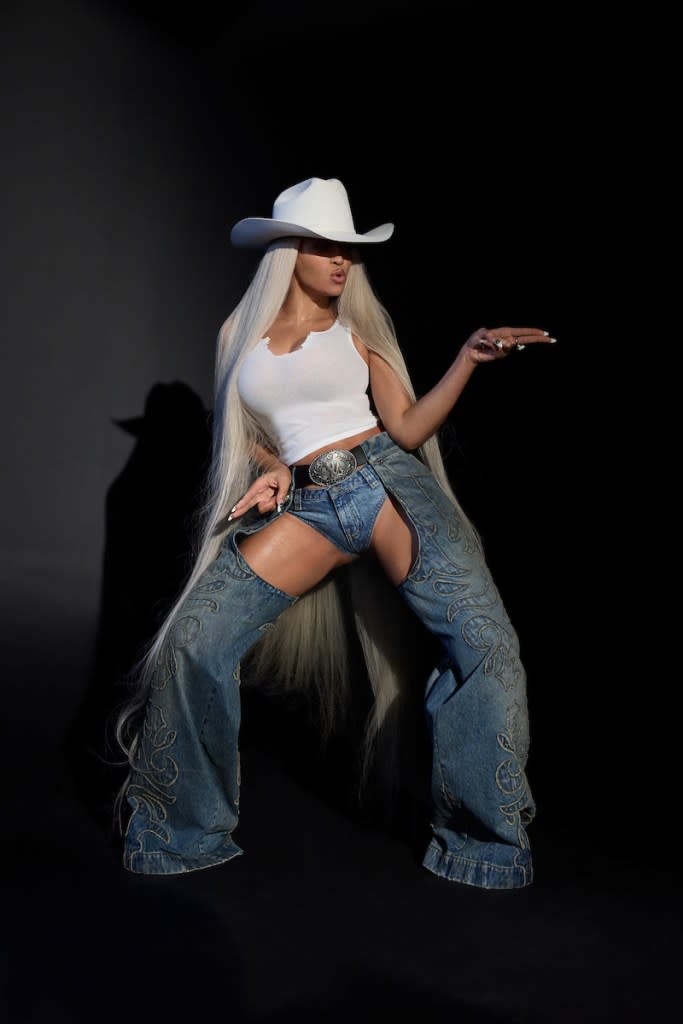
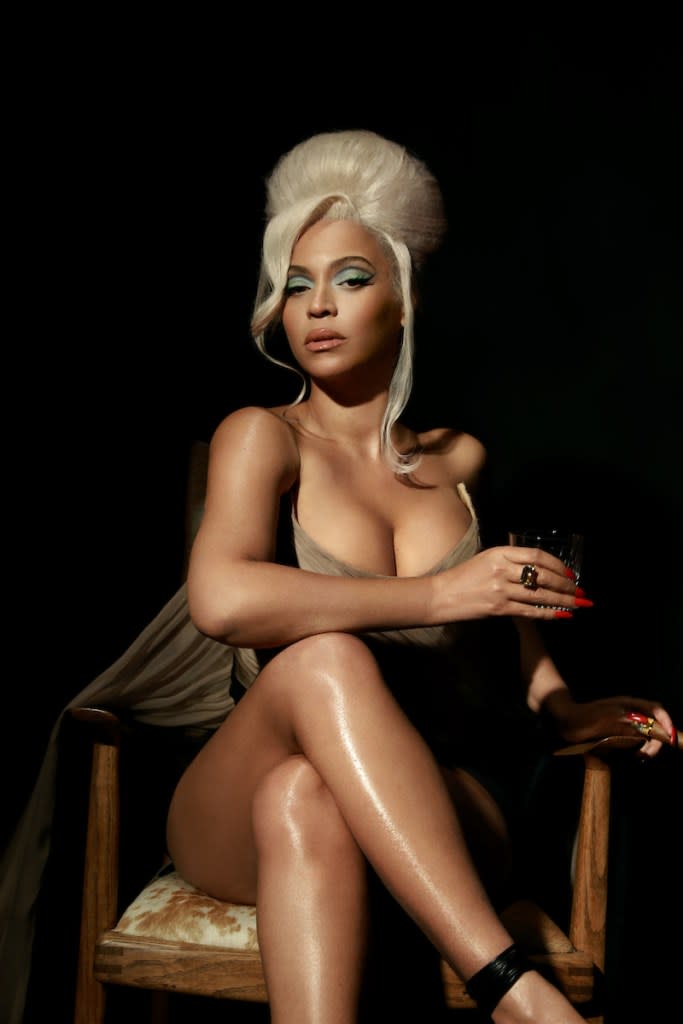
And, yes — if you haven’t been keeping track — the majority of her record 32 Grammys are in the R&B categories.
So basically, folks, Beyoncé is — as “Cowboy Carter” proves once again — a genre all unto herself.
And, still flexing in her artistic peak at the unusually older age of 42, Beyoncé Knowles Carter is increasingly aware of her history, her legacy and, most importantly, her power as a black woman who is the biggest, baddest culture shifter in the game.
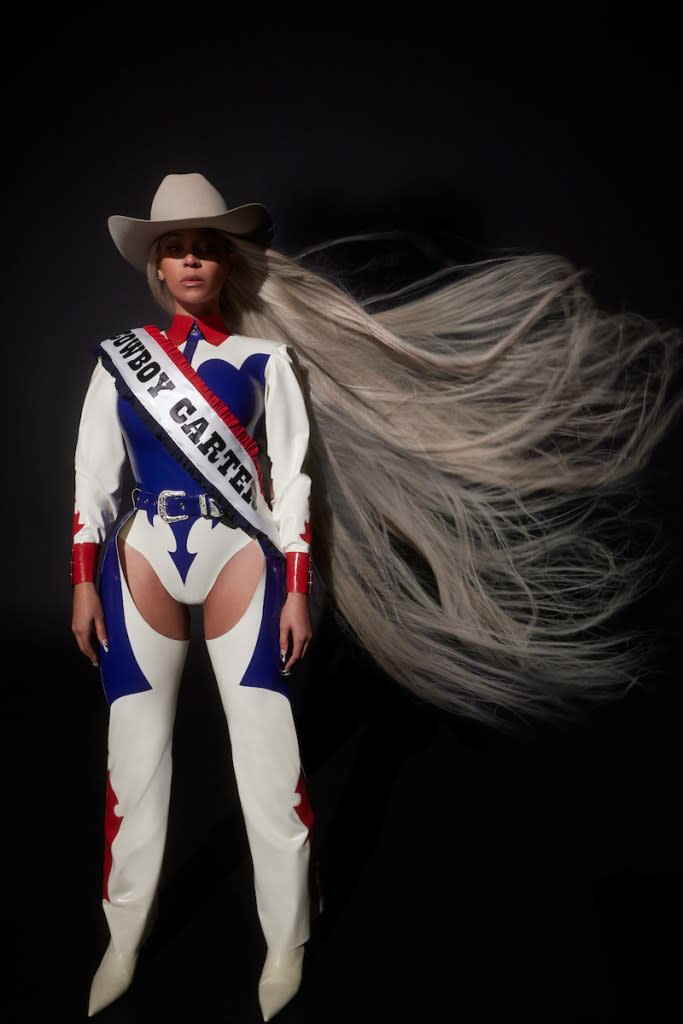
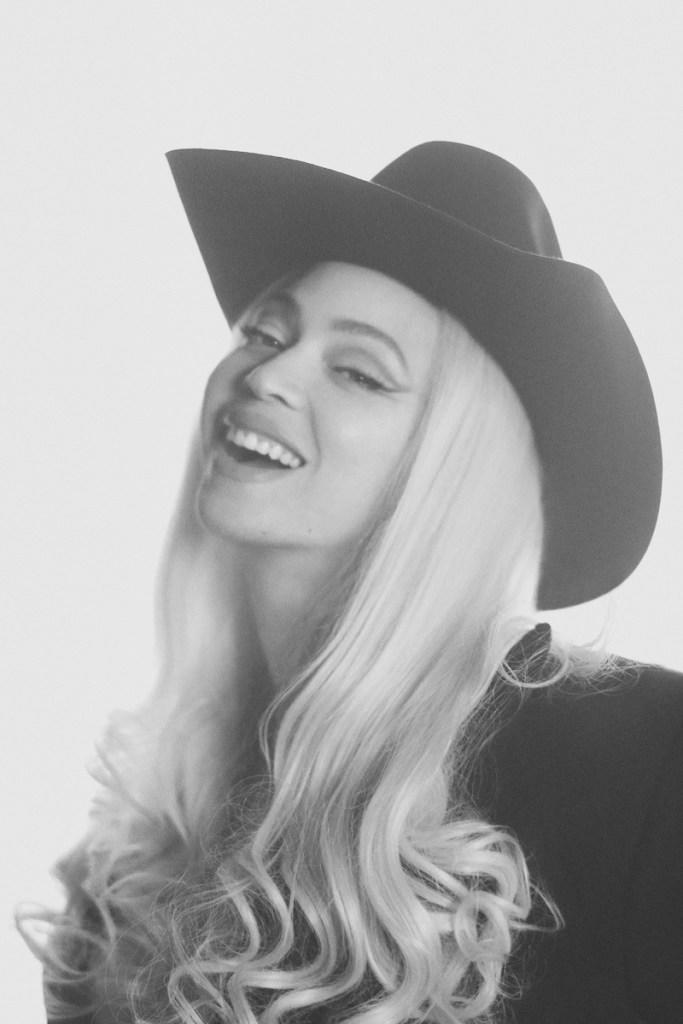
So it feels only natural, only right that she should be the one to school us on one of her ancestors, Linda Martell, who became the first African-American woman to play the Grand Ole Opry in 1969 before she bowed out of the country music industry due to her lack of success.
In “The Linda Martell Show” interlude, the now-82-year-old singer can be heard breaking down how one of her tunes “stretches across a range of genres” in an archival concert snippet.
Likewise, Beyoncé stretches across genres on “Cowboy Carter.” From her honey- and harmony-coated cover of The Beatles classic “Blackbird” — featuring African-American female country singers Tanner Adell, Brittney Spencer, Tiera Kennedy and Reyna Roberts making like Destiny’s Southern Child — to her soulful, acoustic-guitar-strumming rendition of “Jolene” that packs a bit of a hip-hop thump, it’s all Mrs. Carter’s world.
The latter gets an introduction from Dolly Parton herself — 50 years after she originally released her seminal hit.
“Hey Miss Honey B, it’s Dolly P,” says Parton, 78, with all of her familiar, down-home warmth.
“You know that hussy with the good hair you sing about?” she continues, referencing the infamous, man-stealing “Becky” from “Lemonade” standout “Sorry.”
“Reminding me of someone I knew back when … Just a hair of a different color, but it hurts just the same.”
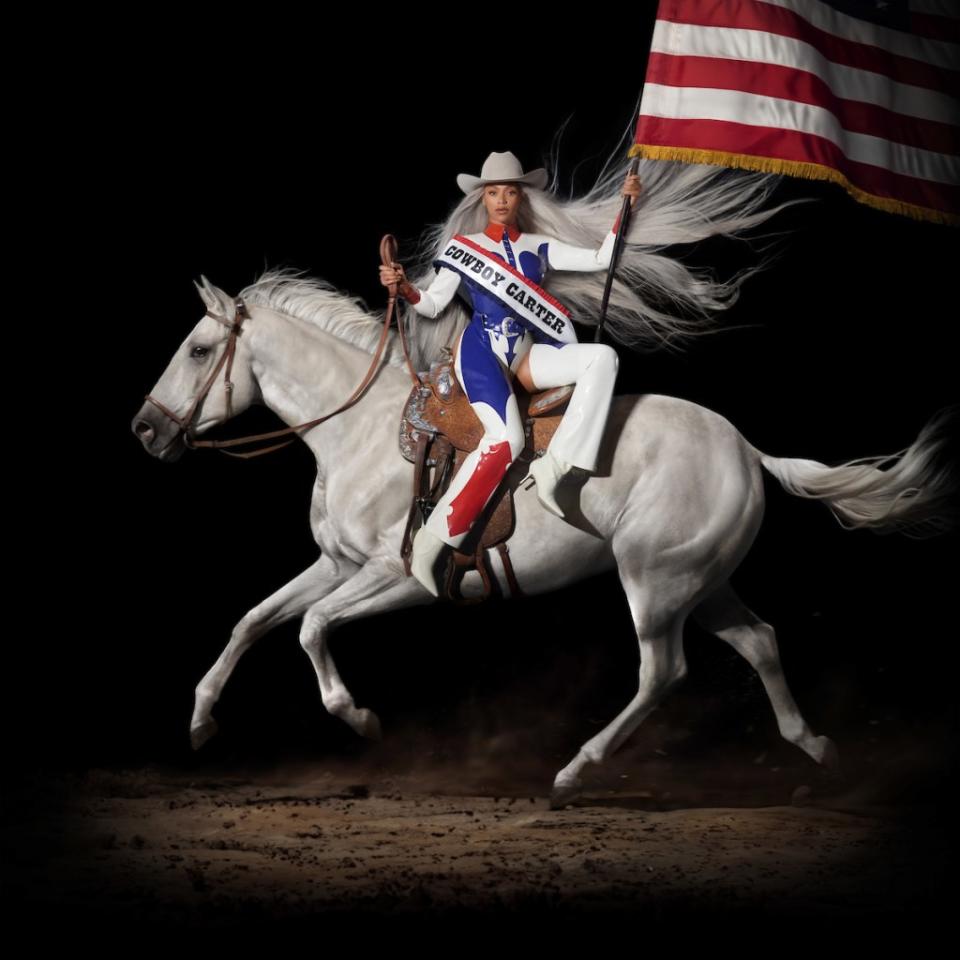
But Parton isn’t the only country legend who — after Beyoncé hinted that she was not “welcomed” when she performed “Daddy Lessons” with the Chicks at the 2016 Country Music Association Awards — co-signs on “Cowboy Carter.”
O.G. outlaw Willie Nelson appears on two interludes — “Smoke Hour” and “Smoke Hour II” — as the host of a radio show on KNTRY in Beyoncé’s native Texas. The first interlude digs into the black roots of country music, while the second breaks down Bey’s mission to bring country music back to black people — with the banjo itself having a lineage that traces back to Africa. (Shout-out to African-American banjo queen Rhiannon Giddens on “Texas Hold ’Em”!)
“Sometimes you don’t know what you like/And then someone you trust turns you on to some real good s–t,” says the weed-smoking icon — ever the rascal at 90 — as he introduces “Just for Fun,” which, despite its title, is a moody meditation with the black country upstart Willie Jones.
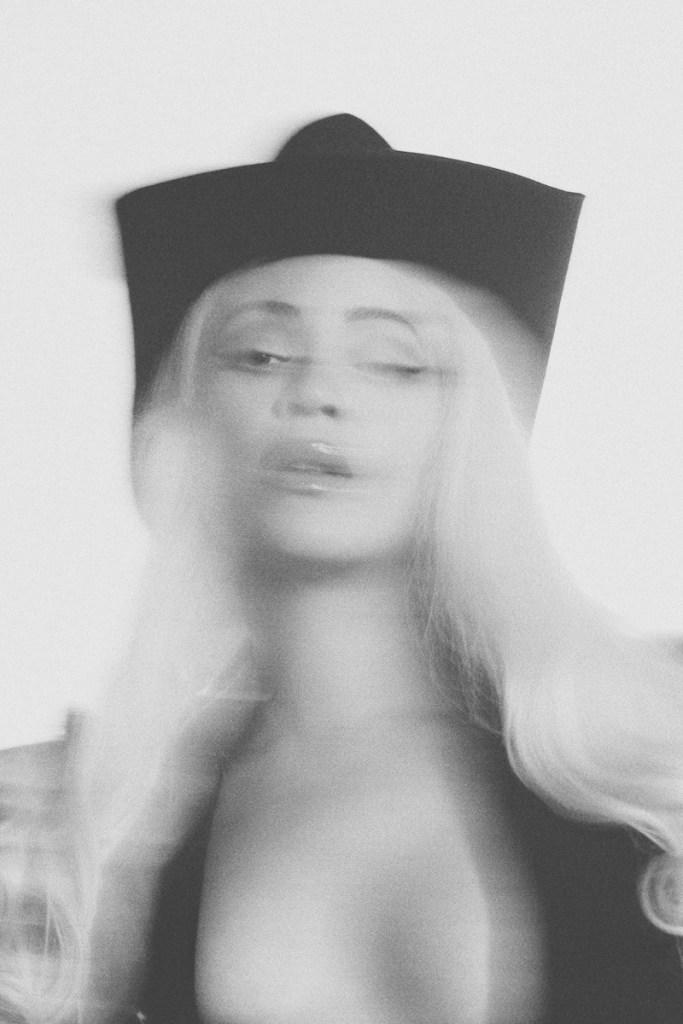
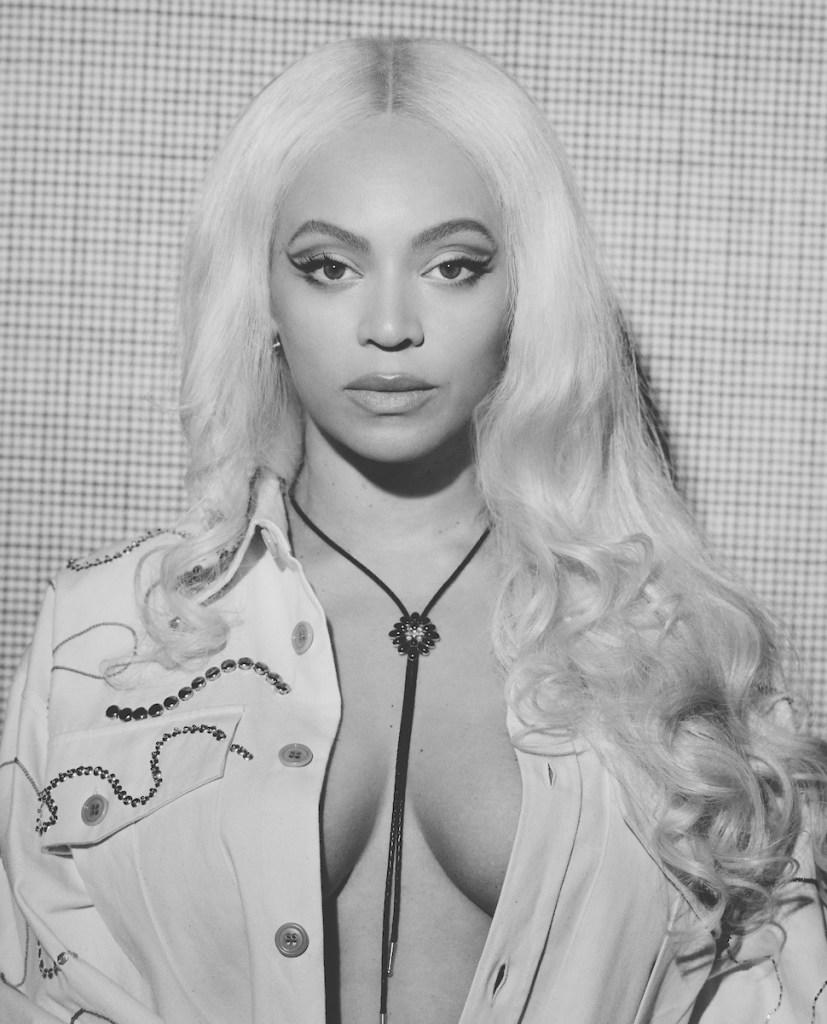
Even better, though, is the Miley Cyrus collab on the next track: “II Most Wanted.” With their voices blending in perfect harmony while interpolating Fleetwood Mac’s “Landslide,” this right here is the duet that we never knew that we needed.
And completing the trio of three consecutive duets is the Post Malone joint “Levii’s Jeans,” which works better than it has any business doing.
But it’s Bey herself who owns the show for most of “Cowboy Carter.”
The breezy “Bodyguard” — which deserves to be a hit just as much as “Break My Soul” did — is the kind of seamless mix of country, pop and rock that you might expect more from, say, Sheryl Crow or Kacey Musgraves.
And “Daughter” — one of the tracks that makes “Cowboy Carter” Beyoncé’s most personal album this side of “Lemonade” — even showcases her classical chops.
Clearly, Mrs. Jay-Z is thinking about family: Her own daughter Rumi Carter, 6, follows in big sis Blue Ivy’s footsteps by getting the cutest of close-ups at the beginning of “Protector.”
But, at nearly 80 minutes, this genre-busting hoedown goes on maybe 15 to 20 minutes too long, even veering back into the trap beats that we’re more accustomed to from Beyoncé on “Spaghetti,” one of two tracks featuring Nigerian singer-rapper Shaboozey.
Too much of this kind of ambition, though, is hardly the worst thing.
